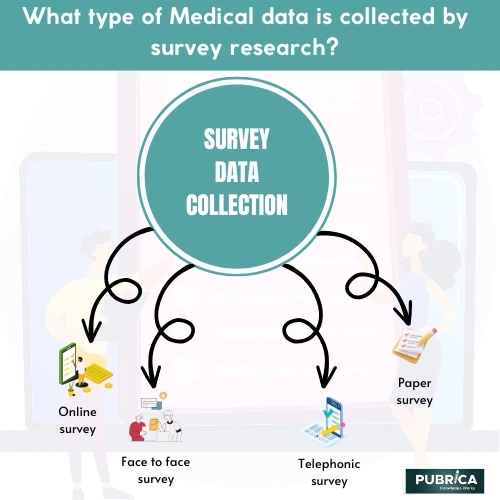- Services
- Discovery & Intelligence Services
- Publication Support Services
- Sample Work

Publication Support Service
- Editing & Translation
-
Editing and Translation Services
- Sample Work

Editing and Translation Service
-
- Research Services
- Sample Work

Research Services
- Physician Writing
- Sample Work

Physician Writing Service
- Statistical Analyses
- Sample Work

Statistical Analyses
- Data Collection
- AI and ML Services
- Research Impact
- Sample Work

Research Impact
- Medical & Scientific Communication
- Medico Legal Services
- Educational Content
- Industries
- Subjects
- About Us
- Academy
- Insights
- Get in Touch

- Services
- Discovery & Intelligence Services
- Publication Support Services
- Sample Work

Publication Support Service
- Editing & Translation
-
Editing and Translation Services
- Sample Work

Editing and Translation Service
-
- Research Services
- Sample Work

Research Services
- Physician Writing
- Sample Work

Physician Writing Service
- Statistical Analyses
- Sample Work

Statistical Analyses
- Data Collection
- AI and ML Services
- Research Impact
- Sample Work

Research Impact
- Medical & Scientific Communication
- Medico Legal Services
- Educational Content
- Industries
- Subjects
- About Us
- Academy
- Insights
- Get in Touch

What Kind Of Medical Data is Collected through Survey Research?
The majority of research may be classified into three types: exploratory, descriptive, and causal. Each has a distinct purpose and can only be utilized in specific ways. In the area of online surveys, knowledge of all three can lead to more sound insights and higher-quality data.
Survey research:
Surveys are the main research instruments that collect data for a larger research strategy. Survey research is essential for obtaining the information needed to make educated decisions about anything from product development to marketing efforts. Understanding more about survey research can enable you to design successful surveys that provide useful primary research data.

Applications of survey research
Here are some applications of survey research:
- Case studies, field observations, focus groups, and interviews are examples of exploratory research applications.
- Descriptive surveys, descriptive-normative surveys, descriptive analysis surveys, and correlative surveys are examples of descriptive research applications.
- Product testing, advertising upgrades, client retention initiatives, and community needs are all examples of causal applied research uses.
Survey research in the medical field collects various types of data to gain insights into health-related topics, behaviours, attitudes, and trends. Some of the common types of medical data collected through survey research include:
- Demographic Information: This includes age, gender, ethnicity, education level, socioeconomic status, and other characteristics that help researchers understand the demographics of the population being studied.
- Health Behaviors: Surveys can gather information about various health-related behaviours such as smoking, alcohol consumption, physical activity, diet, and substance use. This data helps researchers understand the prevalence of risky behaviours and their impact on health in qualitative and quantitative research.
- Medical History: Surveys may inquire about participants’ medical histories, chronic conditions, past surgeries, and current medications. This data can provide insights into the prevalence of specific health conditions and the effectiveness of treatments.
- Symptoms and Health Status: Participants may be asked about their current health status, symptoms they are experiencing, and their overall well-being. This information can help researchers assess the prevalence and severity of various health issues.
- Healthcare Access and Utilization: Surveys can collect data on how often individuals visit healthcare providers, whether they have health insurance and the reasons behind their healthcare-seeking behaviours. This data sheds light on healthcare access and barriers to medical care.
- Mental Health: Questions about mental health conditions, stress levels, anxiety, depression, and emotional well-being are often included in medical surveys to gauge the prevalence of mental health issues.
- Quality of Life: Surveys may include questions about participants’ overall quality of life, satisfaction with their health, and the impact of health conditions on their daily lives.
- Vaccination and Preventive Care: Researchers might inquire about vaccination history, adherence to preventive screenings (e.g., mammograms, colonoscopies), and attitudes towards vaccinations and preventive care measures.
- Health Knowledge and Literacy: Surveys can assess participants’ understanding of health-related information, medical terminology, and their ability to make informed decisions about their health.
- Attitudes and Beliefs: Researchers often include questions to gauge public opinions, attitudes, and beliefs about healthcare policies, medical treatments, and health-related topics.
- Patient Satisfaction: Surveys may be conducted to gather patients’ opinions about their experiences with healthcare services, medical professionals, and healthcare facilities.
- Environmental and Social Factors: Some surveys collect data on environmental and social determinants of health, such as living conditions, access to clean water, air quality, and social support networks.
The collected data is then analyzed to identify patterns, trends, and correlations that can inform healthcare policies, medical practices, and public health interventions. It’s important to note that survey research relies on participants’ accurate and honest responses to provide reliable insights.
Give yourself the academic edge today
Each order includes
- On-time delivery or your money back
- A fully qualified writer in your subject
- In-depth proofreading by our Quality Control Team
- 100% confidentiality, the work is never re-sold or published
- Standard 7-day amendment period
- A paper written to the standard ordered
- A detailed plagiarism report
- A comprehensive quality report


